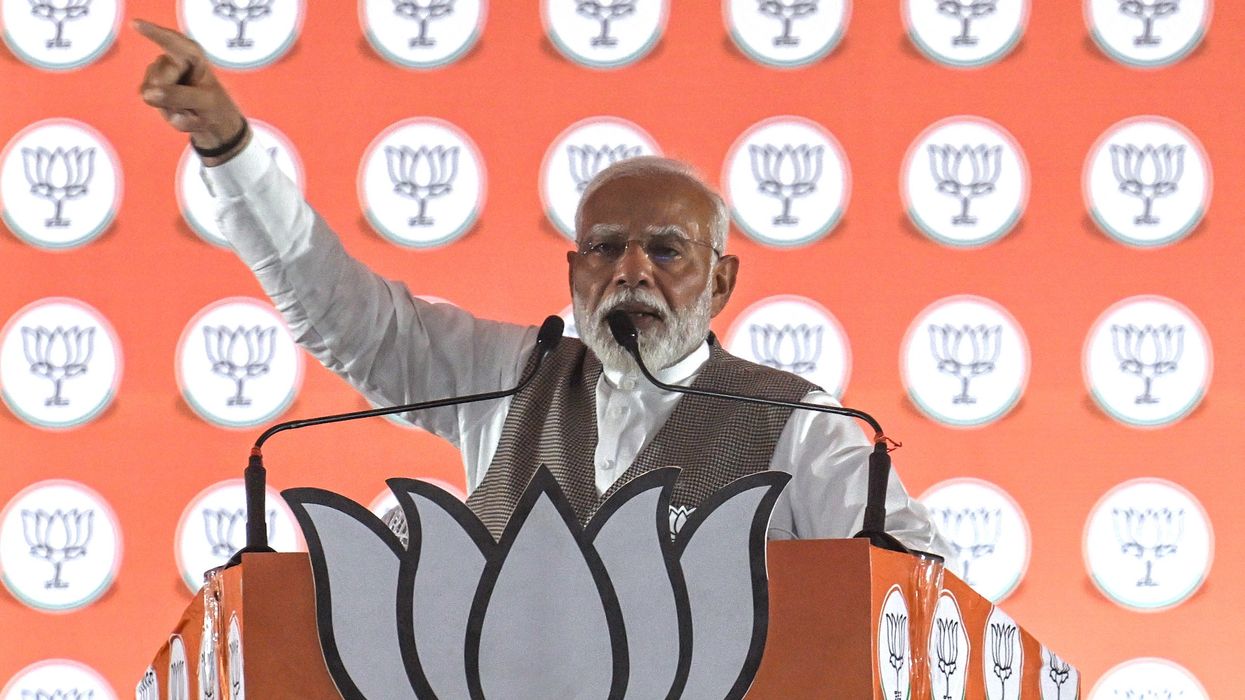Narendra Modi's Bharatiya Janata Party (BJP)-led alliance is projected to secure a significant majority in the general election that concluded on Saturday, according to TV exit polls. These polls suggest the alliance will perform better than most analysts expected.
Most exit polls indicated that the ruling National Democratic Alliance (NDA) could achieve a two-thirds majority in the 543-member lower house of parliament, where 272 seats are needed for a simple majority. This majority would enable the government to implement extensive constitutional amendments.
A summary of five major exit polls projected that the NDA could win between 353 and 401 seats, a result likely to boost financial markets when they reopen on Monday. In the 2019 general election, the NDA won 353 seats, with the BJP securing 303 of them.
Three of the five polls predicted that the BJP alone could win more than the 303 seats it secured in 2019.
The opposition "INDIA" alliance, led by Rahul Gandhi's Congress party, was projected to win between 125 and 182 seats.
Exit polls in India have a mixed record, often getting the outcome wrong due to the country's large and diverse population.
In his first comments after voting ended, Modi claimed victory without mentioning the exit polls.
"I can say with confidence that the people of India have voted in record numbers to re-elect the NDA government," he said on X, without providing evidence.
"The opportunistic INDI Alliance failed to strike a chord with the voters. They are casteist, communal and corrupt."
Pre-election surveys suggested the BJP would retain its majority easily. However, the party faced a vigorous campaign by the "INDIA" alliance, creating some uncertainty about the race's outcome. Many political analysts had predicted a narrower victory margin for the BJP compared to 2019.
The opposition dismissed the exit polls, calling them "prefixed" before their release. Most opposition parties accuse India's main news channels of being biased in favor of Modi, a charge the channels deny. They also argue that exit polls in India are mostly unscientific.
"This is a government exit poll, this is Narendra Modi's exit poll," Supriya Shrinate, the Congress's social media head, told news agency ANI, in which Reuters has a minority stake.
"We have a sense of how many seats we are winning, it will not be one seat less than 259," she said.
Nearly one billion people were eligible to vote in the seven-phase election that began on April 19 and was held in scorching summer heat in many areas.
The Election Commission will count votes on June 4, with results expected the same day.
A victory for Modi, 73, would make him only the second prime minister after independence leader Jawaharlal Nehru to win three consecutive terms.
Modi began his re-election campaign by highlighting his achievements over the past 10 years but soon focused on criticising the Congress for allegedly favoring India's minority Muslims, a claim the opposition denies.
The opposition campaigned on affirmative action programs and preserving the constitution from what they described as Modi's dictatorial rule, an allegation the BJP denies.
Unemployment and inflation are the main concerns for voters in the majority-Hindu country of 1.4 billion people, according to surveys.
Market analysts said the exit polls had reduced uncertainty about the election's likely outcome and indicated the continuity of Modi's growth-focused economic policies.
"Exit poll results which indicate a clear victory for the NDA with around 360 seats completely remove the so-called election jitters which have been weighing on markets in May," said VK Vijayakumar, chief investment strategist at Geojit Financial Services.
"This comes as a shot in the arm for the bulls who will trigger a big rally in the market on Monday," he said.
(Reuters)





